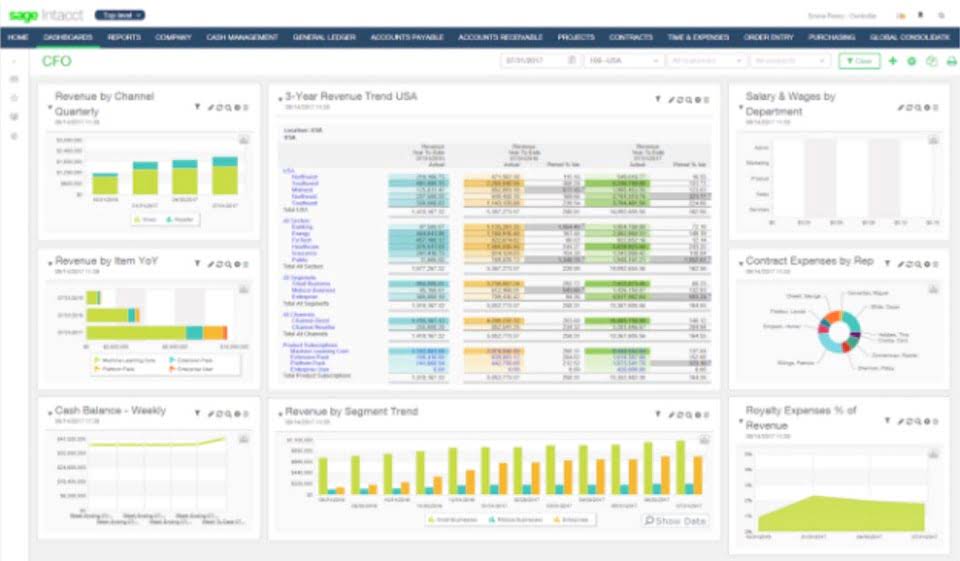
Both accountants and bookkeepers work to maintain accurate records of finances, and sometimes the terms are used interchangeably. Generally, bookkeepers focus on administrative tasks, such as completing payroll and recording incoming and outgoing finances. Accountants help businesses understand the bigger picture of their financial situation. In smaller businesses, bookkeepers may handle broader responsibilities, such as processing payroll or assisting with tax preparation.

Consider earning a degree.
Bookkeeping professionals have their own expertise based on the types of businesses and industries they serve. Bookkeepers record financial transactions in ledgers, noting details like dates, amounts, purposes, and bank accounts. These controls reduce the risk of errors and potential fraud within an organization. They ensure that every financial transaction is recorded accurately and that the data reflects the company’s actual financial position.
- A bookkeeper plays a crucial role in preparing these reports, which are essential for conducting comprehensive financial analysis.
- So if you’re looking to hire a bookkeeper, it is essential to create a bookkeeper job description that fills your recruitment funnel with ideal candidates as quickly as possible.
- Many bookkeepers hone and develop their expertise over time while others opt to complete seminars, read books or take online classes.
- In the realm of bookkeeping, reconciliation and compliance are crucial responsibilities that ensure financial accuracy and adherence to pertinent regulations.
Free Course: Understanding Financial Statements
A bookkeeper is responsible for recording daily financial transactions, updating a general ledger and preparing trial balances for perusal by accountants. They monitor Retail Accounting cash flow and produce financial reports to assist managers in taking strategic decisions. Bookkeepers may also assist in running payroll and generating invoices for your company.

Continual Learning and Certifications
Being consistent, accurate, and minimizing errors are key characteristics that employers are seeking for this position. It is indispensable to have a knowledge of accounting and to understand how to use accounting software systems. While single-entry bookkeeping is simpler, double-entry is more thorough and less likely to produce errors. After completing your education, you can seek an internship and get on-the-job training to become a bookkeeper. However, it helps to have a two- or four-year degree in accounting, finance or related discipline. We recommend taking the time to find a bookkeeper you can trust a great deal.

Additionally, there may be other responsibilities based on the unique needs of your business. For example, a bookkeeper may be required to learn a specific accounting software system or participate in certain meetings. If you opt for bookkeeping software—like Quickbooks—keep in mind the time commitment required to learn how to properly use the program.
- It is not uncommon for seasoned bookkeepers to leverage their foundation in bookkeeping as a stepping stone into more advanced accounting positions.
- If all your mental powers have been focused on getting your business off the ground, you might not yet fully understand what a bookkeeper does.
- We recommend taking the time to find a bookkeeper you can trust a great deal.
- Generally, bookkeepers focus on administrative tasks, such as completing payroll and recording incoming and outgoing finances.
- They’re responsible for recording every financial transaction in your general ledger using double-entry bookkeeping—usually called recording journal entries.
- Bookkeepers have been around as far back as 2600 BC—when records were tracked with a stylus on slabs of clay—making bookkeeping not the oldest profession, but pretty darn close.
Save time with verified expertise for your books
It should also detail the requisite educational background and any software competencies. The bookkeeper’s role involves the systematic data entry of financial transactions which includes purchases, sales, receipts, and payments by an individual or organization. Every transaction, whether it is cash or credit, needs to be recorded accurately. These transactions are typically assets = liabilities + equity logged in chronological order into the day book, customer ledger, or suppliers ledger. As financial custodians, bookkeepers also engage in reconciliations to validate the integrity of accounting data. They ensure that every financial transaction aligns with bank statements and financial records.

After you have a few years of experience, you can earn the Certified Bookkeeper designation from the American Institute of Professional Bookkeepers by passing a series of exams. While it’s not always necessary to have a degree, some companies will look for candidates with coursework in accounting. If you’re a detail-oriented individual who enjoys working with numbers, then you might consider a career as a bookkeeper. Live Bookkeepers aren’t responsible for errors resulting from incorrect information that you provide, or if you re-open the books by overriding closure after a Live Bookkeeper completes the month-end closure.

So, what does a bookkeeper do all day?
Bookkeeping is the recording of financial events that what is a bookkeeper take place in a company. Any process of recording financial data is considered bookkeeping and is the first step of data entry into the accounting system. Standard methods of bookkeeping are the double-entry bookkeeping system and the single-entry bookkeeping system. Good bookkeeping practices are essential for a business to succeed, especially when it comes to the tax-paying season.
